In 400 B.C. the Greek doctor Hippocratis of Cos, regarded as the father of medicine, wrote the Hippocratic Oath. This pledge of ethics outlines proper conduct and basic principles to be observed by doctors. All graduating medical students once pledged first to “do no harm”—the most well-known and fundamental promise. However, the original Oath has been rewritten to accommodate efforts to legalize and normalize euthanasia, assisted suicide, and abortion, which are explicitly prohibited in the original Oath.
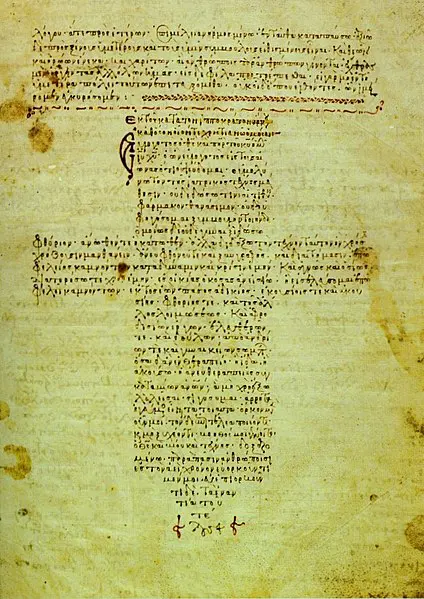
An ancient copy of the Hippocratic Oath
Post-World War II, the Declaration of Geneva was drafted to revise the Hippocratic Oath. In light of crimes committed by physicians in the concentration camps, the following clause was added: “I will maintain the utmost respect for human life, from the time of conception; even under threat, I will not use my medical knowledge contrary to the laws of humanity.” The reference to conception was removed in 1983 and replaced with a physician’s obligation to respect life “from the beginning.” The language remained unchanged until 2006. In the United States, Dr. Louis Lasagna rewrote the oath in 1964. His version is commonly recited today in medical schools. Today, different versions of the oath exist and none contain any reference to the beginning of human life.
Although its relevance is questioned today, the Hippocratic Oath is the most enduring tradition in the practice of medicine. Well-known anthropologist Margaret Mead once commented:
For the first time in our tradition there was a complete separation between killing and curing. Throughout the primitive world, the doctor and the sorcerer tended to be the same person….He who had the power to cure would necessarily also be able to kill [but] with the Greeks the distinction was made clear. [Physicians] were to be dedicated completely to life under all circumstances, regardless of rank, age or intellect—the life of a slave, the life of the Emperor, the life of a foreign man, the life of a defective child.1
This significant and profound distinction between healing and harming has been deliberately muddled in order to justify legalization of euthanasia and assisted suicide. Today, euthanasia is illegal in the United States but allowed in countries such as Belgium, Luxembourg, and Colombia. Assisted suicide is legal in Vermont, New Mexico, Washington, and Montana. Unsurprisingly, objections concerning the relevance of the Oath have coincided with efforts to legalize assisted suicide in other states. Demands to discontinue the Hippocratic Oath have unsurprisingly intensified because its original meaning is plainly incompatible with increasingly common modern medical practices.
“I will neither give a deadly drug to anybody who asked for it, nor will I make a suggestion to this effect.” So swears the physician reciting the classical Oath. The question of relevancy to modern times is itself irrelevant since the Hippocratic Oath outlines basic moral principles, i.e., objective moral truths, which are not subject to change according to what is deemed acceptable or intolerable today or tomorrow.
Accepted medical practice should rest on a full understanding of the inherent worth and dignity of the human person. In the United States, protocols in regards to assisted suicide betray at least some awareness that causing or encouraging another individual’s death contradicts basic moral principles of medicine. For example, physicians are not allowed to administer the life-ending drug directly to the patient. Instead, the patient must administer and ingest the drug on his own.
From 1998 to 2017, 4,249 prescriptions were written for assisted suicide drugs and 66.3% of patients used the drugs to end their lives. 63.1% had cancer and a majority were between the ages of 69-89 years old. Notably, assisted suicide in Oregon increased by 28% in 2020. Despite arguments saying assisted suicide is used most commonly in situations of terminal and intolerable suffering, these numbers should motivate careful consideration and analysis of a potential correlation between the increase in assisted suicides and the detrimental mental effects of the COVID-19 lockdowns. Most likely, a careful evaluation will suggest a great number of patients are in need of psychological help, not aid in dying, and that state laws and medical protocols are not providing a sufficiently thorough and honest determination of a patient’s so-called eligibility for assisted suicide.
Should Euthanasia and Assisted Suicide Be Permitted?
Pro Arguments
Those who want to defend euthanasia and assisted suicide often cite the following reasons:
- The Hippocratic Oath is supposedly outdated and does not take into account advances in medicine and technology, which are able to provide painless death. Moreover, if all prohibitions were taken literally, procedures such as abortion and surgery would not be permitted.
- Personal autonomy: assisted suicide and voluntary euthanasia are chosen, freely accepted or rejected by a patient. To rob a terminally ill patient of her end-of-life decisions lacks compassion and reason. The principles outlined in the traditional Hippocratic Oath are direct threats to personal autonomy.
- “Dignified” death: Suffering robs us of our dignity. Or more specifically, our incapacity or unwillingness to live with suffering deprives our lives of their inherent value.
- “Harm is subjective”:Death is a uniquely personal experience. As such, it should take into account the particular circumstances and wishes of the dying, including their desire to bring about their own death before submitting to a terminal illness. Dr. Philip Nitschke, founder of Exit International, a pro-euthanasia group, comments: “Does not doing harm mean that we should prolong a life that the patient sees as a painful burden? Surely, the ‘harm’ in this instance is done when we prolong the life, and ‘doing no harm’ means that we should help the patient die.”
Con Arguments
The following points indicate that euthanasia and assisted suicide are really attacks on human dignity. Euthanasia and assisted suicide…
- Incentivize killing over existing treatments or cures:Health insurance companies in states such as OR and CA will sometimes pay for assisted suicide drugs but not cover treatment for terminal illnesses.
- Threaten the lives of vulnerable persons: Elderly, poor, disabled people will be at greater risk of falling prey to so-called assisted suicide and euthanasia because few restrictions are applied to the taking of life ending medication after it has been prescribed. It becomes impossible to know whether or not the drugs are taken without coercion since laws surrounding assisted suicide have none or very loose requirements to assess a patient’s consent and competency.
- Allow the killing of patients with treatable or curable illnesses: Eligibility for assisted suicide is determined on the basis of whether or not a patient will die within six months. However, the law does not distinguish between a patient who will die within six months with treatment and a patent who will die within six months without treatment. Essentially, anyone with a chronic disease such as diabetes is eligible for assisted suicide in states where it is legal.
- Are available for trivial reasons: Once we cease to value human life, any reason at all can justify ending life. Decreased ability engage in enjoyable activities, losing autonomy, “burdening” family, friends or caregivers—all these are reasons given for seeking assisted suicide in states where it is legal.
- Are available to the mentally ill: Counseling provided to patients is not intended to treat any possible psychiatric illness, but only to determine whether or not the mental disorder is impeding sound judgement.
- Deter advancements in palliative care: In the absence of a cure, palliative care is meant to provide relief for the mind and body. A great number of advancements have been made in providing comfort to the terminally ill, but assisted suicide undermines and disincentives efforts to continue improving palliative care treatments.
Imago Dei (Latin for “image of God”) is a foundational teaching of the Catholic Church, which informs our belief that all human life is intrinsically good and valuable. The Bible tells us that God created mankind in His own “image and likeness” (Genesis 1:26), which means, as the Church teaches, that our human reason and will set us apart from the rest of creation and make us the image of God. For this reason, our worth is not determined by external factors or characteristics such as disabilities, socio-economic conditions, race, or religion. Human life is valuable precisely because of its likeness to the eternal God, not because of the material world.
Final Thoughts
Respect for the human being is the cornerstone of a moral society. Advances in medicine and technology should serve and be attuned to the dignity of every person. They should affirm the worth of every human life on the grounds that life is always good, always worth living.
Assisted suicide and euthanasia accomplish the exact opposite of “death with dignity.” Death is inimitably personal yet universal, and every occasion of death is filled with greater or lesser degrees of shadows and light. But to accept death and not seek to hasten or bypass the experience for ourselves or others acknowledges our human dignity is tied directly to God, in Whose image we have been made.
More Information about Euthanasia and Assisted Suicide:
- An Introduction to the Problem of Euthanasia
- Why Euthanasia Is Wrong—from a Secular Viewpoint
- Church Teachings on Euthanasia
- Physician-Assisted Suicide for Terminally Ill Patients
Endnote
[1] Psychiatry and Ethics. Introduction by Margaret Mead. George Braziller. 1972.


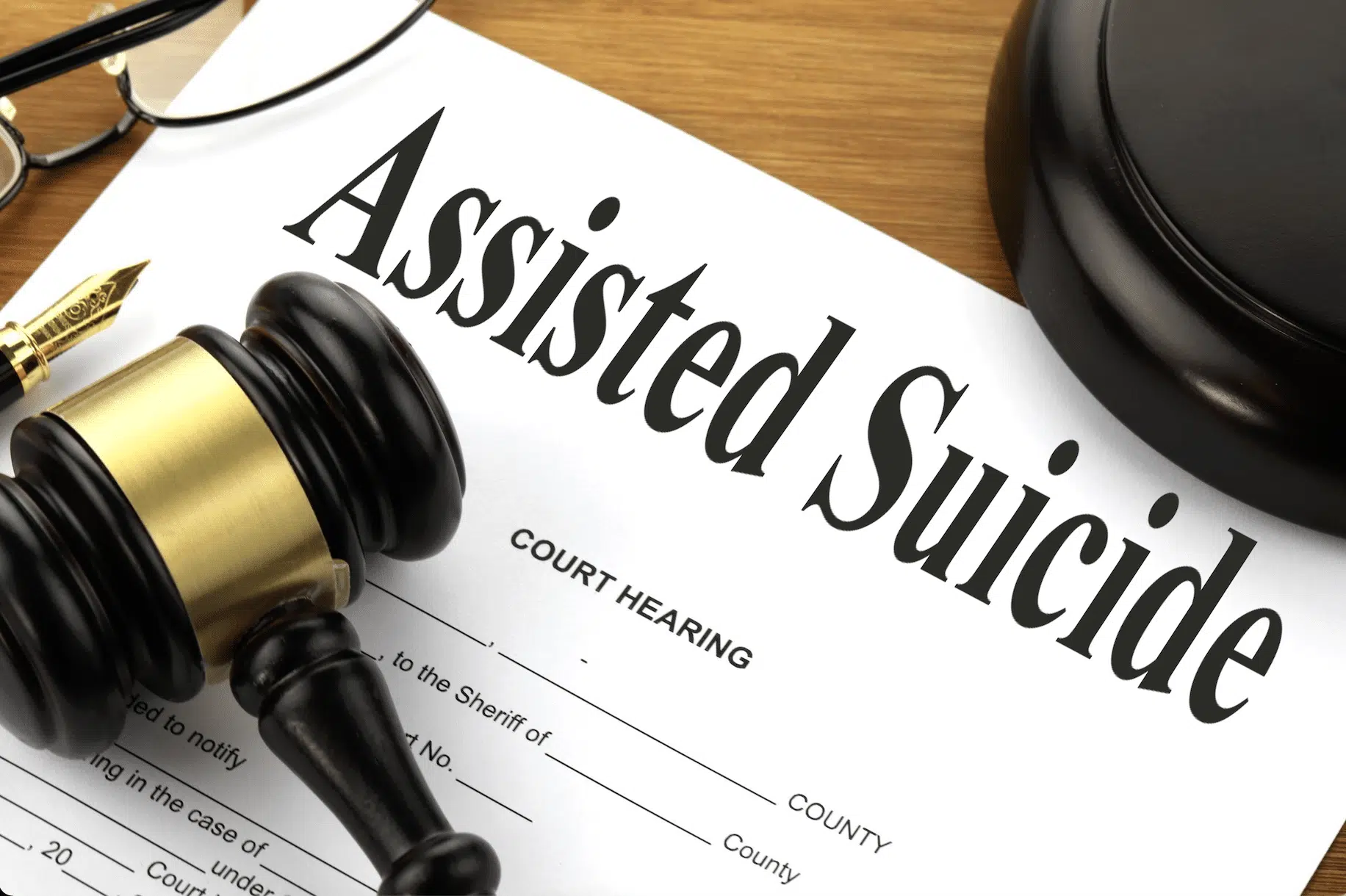
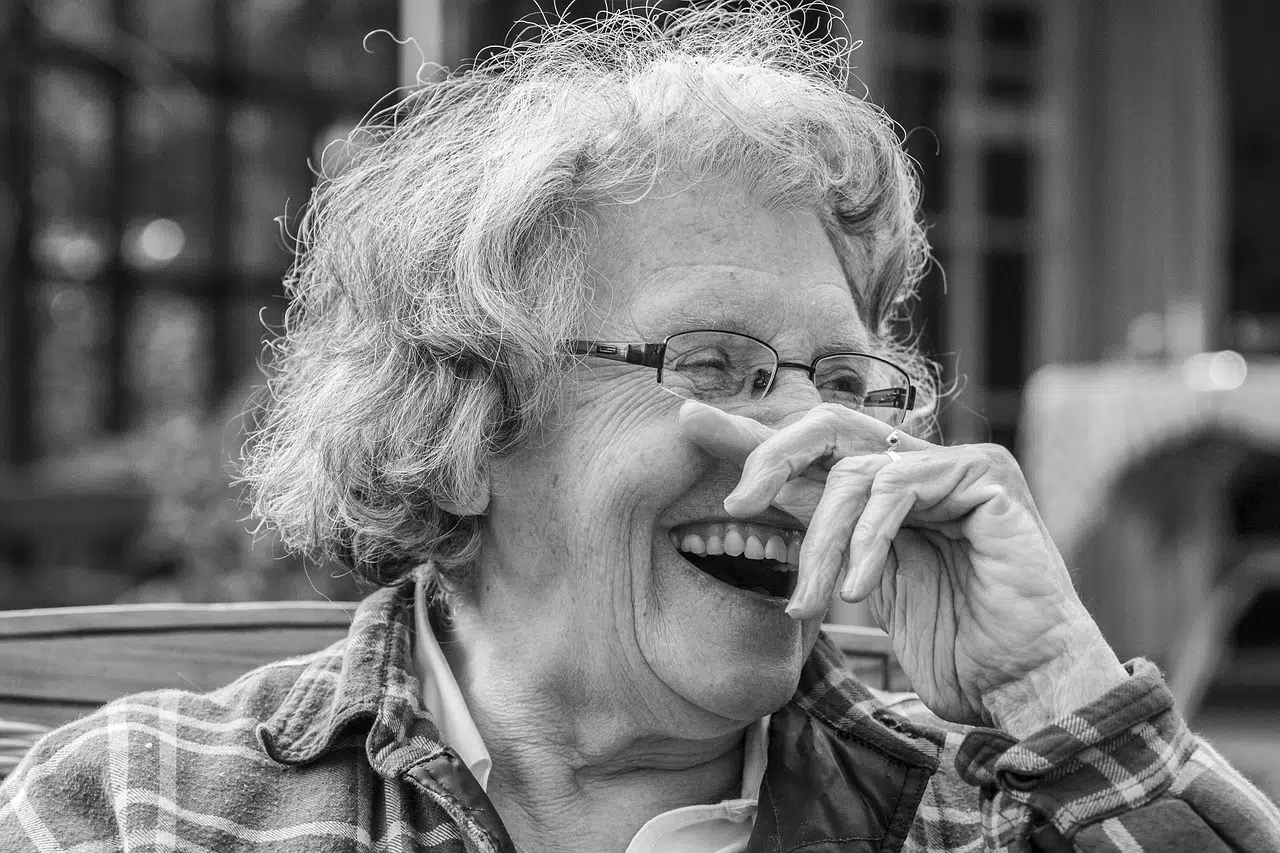
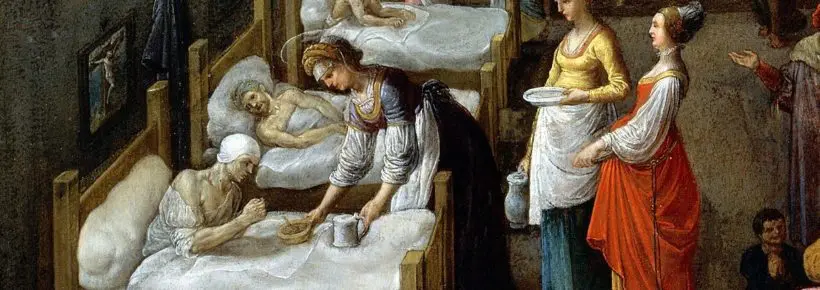
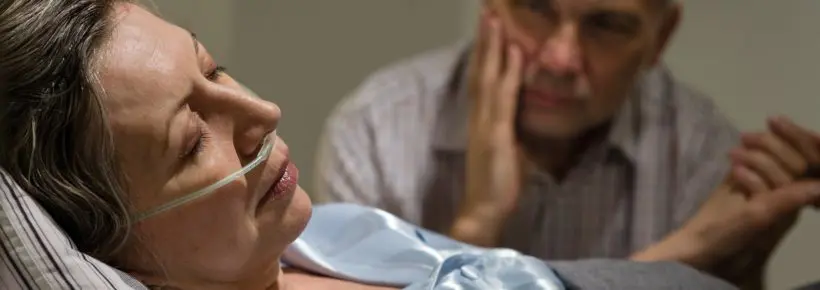


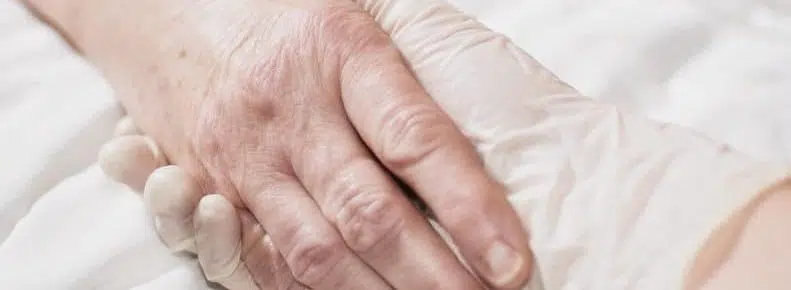

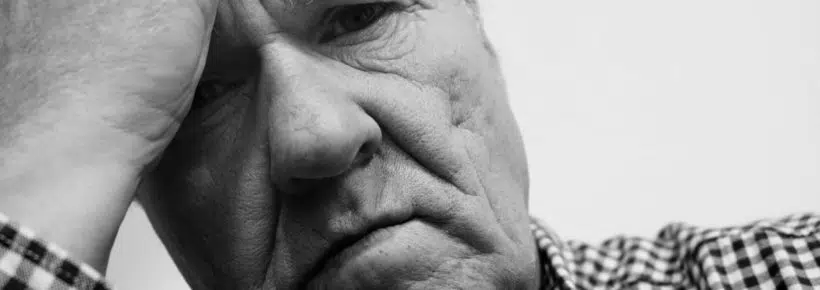
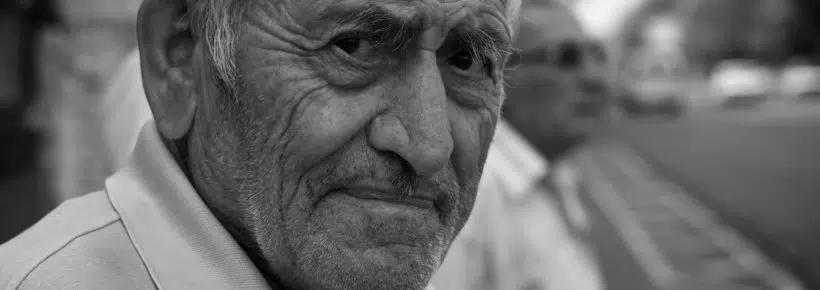


First, you may want to clarify, that the oath is attributed to Hippocrates, but it is not written by Hippocrates, this leaves room to assess who had an interest to formulate it that way.
Furthermore, the oat contains other passages, that also have changed over time. I do not see that in our modern world we would be able to educate the children and relatives of our teachers for free as also required by that oath.
But most importantly, moral is never objective, but subjective to environment and time. Is polygamy ok as it is believed to be ok in some religions; does a man owns his wife?
Dear Hans,
The Hippocratic Oath is attributed to Hippocrates as the original writer. You are correct that there are passages that have changed over time, in fact this article discusses the changes and the steady erosion of meaning from the oath. While it is understandable that things like the ability to educate another doctor would change with the times and social understandings of medical licenses, there are immutable truths and unchangeable moral standards. What you seem to be referencing is subjective and changing legal systems, rather than unchanging ethical standards. Murder for instance is always wrong, regardless of cultural shifts. Permissive attitudes in the West towards killing someone in a duel several centuries ago for instance does not make it any less wrong. And thus, core elements of the Hippocratic Oath, such as a doctor being called to heal and not to kill remain both relevant and unchanging. Laws may change but right and wrong remain right and wrong.
HLI Staff